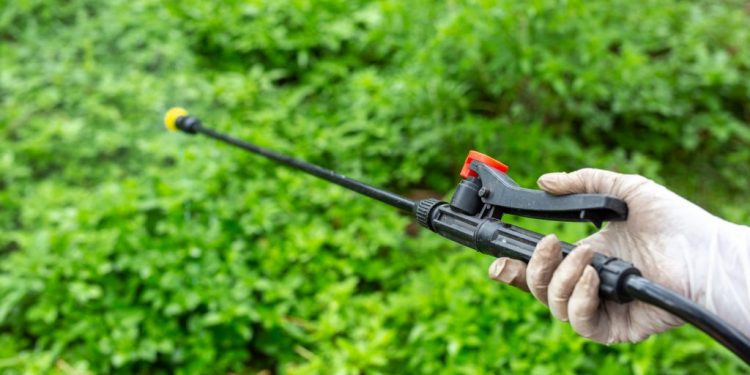If you found your lawn infested with weeds, chances are you’ve considered using Roundup. Roundup is very potent. One needs to mix it with water and sprayed it on the affected plants’ leaves. It will then travel from the leaves to the roots. Glyphosate in Roundup kills plants by stopping them from producing nutrients essential for plant respiration and growth. Roundup is a non-selective herbicide. It will kill all vegetation it will come in contact with, even healthy ones. So, is Roundup bad for grass? It can be, and it can also kill your thriving lawn if you don’t use it with caution.
Possible Side Effects
Up to now, there isn’t still an agreement among homeowners and agriculturalists whether Roundup is dangerous. Some have said it’s safe and environmentally friendly. The best part is it’s easy to use. While some also noted that it is a toxic and hazardous chemical. Is Roundup bad for grass? First, let’s consider its components. Roundup has an active chemical called glyphosate. This chemical only binds with the soil. It means that the chances of it running off into your water systems are very low. If it does not adhere to the ground, it will become inactive. This substance is mostly nontoxic for humans.
Another substance to consider to answer the question: is Roundup bad for grass is a polyethoxylated amine (POEA). This chemical allows the movement of glyphosate from leaves to roots of the Roundup. Unlike glyphosate, POEA is not trapped by soil. It will stay longer in the environment before degrading, causing an environmental hazard. Recent studies also proved that POEA might be toxic to human embryos.
Precision
Based on its components, it seems like Roundup is bad for grass. However, that may not always be right. You can reap the advantages of Roundup. Just be sure to avoid contact with your healthy plants. You may use cardboards to limit Roundup from affecting other plants, also creating a box with an open top and bottom. Place it over the area of grass that you wish to terminate. Spray the herbicide within the box only. For crawling weeds, you can unwind them from desired plants. Once separated, spread the weeds on a newspaper, then spray it. Wait for the grass foliage to dry first before removing the newspaper or the cardboard. Remember not to spray Roundup during windy days. If you don’t want to spray, you may apply this herbicide with a paintbrush. The paintbrush may provide more precision to ensure healthy plants are not damaged.
Timing
Some say that Roundup is bad for grass, but it is most useful when plants can transport it quickly to their roots. For perennial plants, their saps move soon in the Fall. It is the time when they are actively growing. If you will use Roundup on perennial plants, spray it before flowering. Look out for plants that will re-sprout in the Fall and spray on them before they turn brown. To prevent weeds with your annual plants, spray while the plants are still young. That way, you will only use a small amount of the product. And at the same time, prevent weeds from flowering and seeding.
Alternatives
If you do not like using Roundup, you may use other methods to remove weeds. That way, you don’t have to worry whether Roundup is bad for grass. First, try the tested pulling out method. You can also add corn gluten or mulch to reduce the number of weeds. Corn gluten is a dry powder from the by-product of cornstarch production. It should be applied to the lawn at least twice a year. Unlike Roundup, this will not kill mature plants. It will only hinder the growth of new ones. However, this means that it will not be effective in removing well-established weeds.
Corn gluten is safe for people and most animals. It is a common ingredient in dog foods.
Lasagna mulching is also another alternative. It will help tame your lawn. Also, it entails covering your grass with leaves and other compost ingredients repeatedly until you form layers. This Cover will smother the weeds and help enrich the soil for about six months.
Better yet, avoid seeding plants that will attract weeds. Your best choice would be plants that are native to the region. Native plants are more established as they cope well since they can compete for nutrients better.
Weeds are one of the homeowners’ nightmares. If you want to treat this, herbicides are the choice of many. However, some may also add to that nightmare, significantly if they can damage your lawn. Among these herbicides is Roundup, which has gathered a negative image, causing people to think Roundup is bad for grass. Just like what was mentioned, it may not always be accurate. Roundup can kill grass, but with care, it will be instrumental in terminating weeds.











